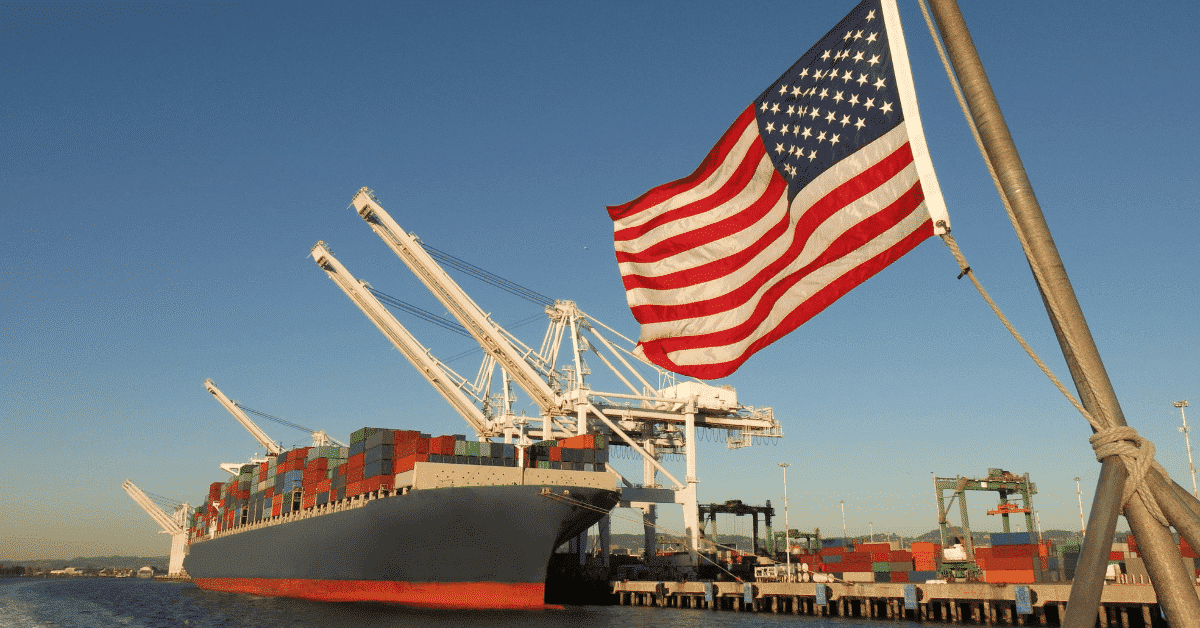Tens of Thousands of Dockworkers Strike Across US Ports
US Ports Tens of thousands of dockworkers have gone on strike indefinitely at ports across much of the US, threatening significant trade and economic disruption ahead of the presidential election and the busy holiday shopping season.
Members of the International Longshoremen’s Association (ILA) walked out on Tuesday at 14 major ports along the east and gulf coasts, halting container traffic from Maine to Texas. The action marks the first such shutdown in almost 50 years.
President Joe Biden has the power to suspend the strike for 80 days for further negotiations, but the White House has said he is not planning to act.
What is the strike about?
Talks have been stalled for months, and the current contract between the parties expired on Monday. The White House said President Biden and Vice President Kamala Harris were monitoring the strike closely.
“The President has directed his team to convey his message directly to both sides that they need to be at the table and negotiating in good faith—fairly and quickly.”
The dispute revolves around a six-year master contract covering approximately 25,000 port workers employed in container and roll-on/roll-off operations. The US Maritime Alliance (USMX), representing shipping firms, port associations, and marine terminal operators, said it had increased its offer, raising wages by almost 50%, tripling employers’ contributions to pension plans, and enhancing healthcare options.
ILA union boss Harold Daggett has called for significant pay increases, while voicing concerns over automation threats. USMX accused the union of refusing to bargain and filed a complaint with labor regulators to order the union back to the table.

Under the previous contract, starting wages ranged from $20 to $39 per hour, depending on experience, along with bonuses tied to container trade. The union demands a five-dollar per hour pay increase each year over the six-year deal, which would amount to about 10% per year.
The ILA argues that workers deserve more compensation after shipping firms saw soaring profits during the COVID-19 pandemic, while inflation hit salaries. It has warned of a broader strike involving other members, though the exact number remains unclear.
What items will be affected by the strike?
Time-sensitive imports, such as food, are likely to be among the first impacted. The ports involved handle about 14% of agricultural exports shipped by sea and more than half of imports, including a significant share of bananas and chocolate, according to the Farm Bureau.
Other sectors exposed to disruption include tin, tobacco, and nicotine, according to Oxford Economics. Clothing and footwear firms, along with European carmakers routing shipments through the Port of Baltimore, will also face challenges.
Imports surged over the summer as businesses rushed shipments ahead of the strike. “We may not see immediate, significant economic impacts, but over the course of weeks, if the strike lasts that long, we could see rising prices and some goods shortages,” said Seth Harris, professor at Northeastern University and former White House labor adviser.
What will the economic impact be?
More than a third of US exports and imports could be affected, hitting the economy to the tune of at least $4.5 billion per week, according to Grace Zemmer, associate US economist at Oxford Economics. Other estimates suggest the economic hit could be even higher.
Zemmer warned that more than 100,000 people could find themselves temporarily out of work as the effects of the stoppage spread. Peter Sand, chief analyst at ocean freight analytics firm Xeneta, added that the stand-off could push up shipping costs, which would hurt both consumers and businesses that rely on “just-in-time” supply chains.
How could this affect the US election?
This marks the first ILA strike since 1977 and brings uncertainty to the US economy at a delicate time. With the election just six weeks away, the economy has slowed, and the unemployment rate is ticking higher.
The strike risks placing President Biden in a tricky position. US presidents can intervene in labor disputes that threaten national security or safety by imposing an 80-day cooling-off period. In 2002, Republican President George W. Bush intervened to reopen west coast ports after an 11-day strike by a different union.
The US Chamber of Commerce has called on President Biden to take action, stating that Americans “experienced the pain of delays and shortages of goods during the pandemic-era supply chain backlogs in 2021. It would be unconscionable to allow a contract dispute to inflict such a shock to our economy,” according to Suzanne P. Clark, president and CEO of the group.
ILA leader Harold Daggett, who endorsed Biden in 2020, has been critical of the president recently, particularly regarding pressure on west coast dockworkers to reach a deal last year. He met with former President Donald Trump in July.
Although strike chaos could hurt Democrats, alienating labor allies so close to the election could be more damaging, said William Brucher, professor of labor studies at Rutgers University. Public support for the strike could be tested, especially given Daggett’s controversial past, including a 2004 acquittal on links to organized crime. However, Brucher believes that many share the dockworkers’ concerns about cost-of-living and automation, adding, “The strike is the workers’ decision, and they won’t be easily swayed by public opinion.”
He concluded that pressure from the strike is likely to force employers back to the table with a more substantial offer.





